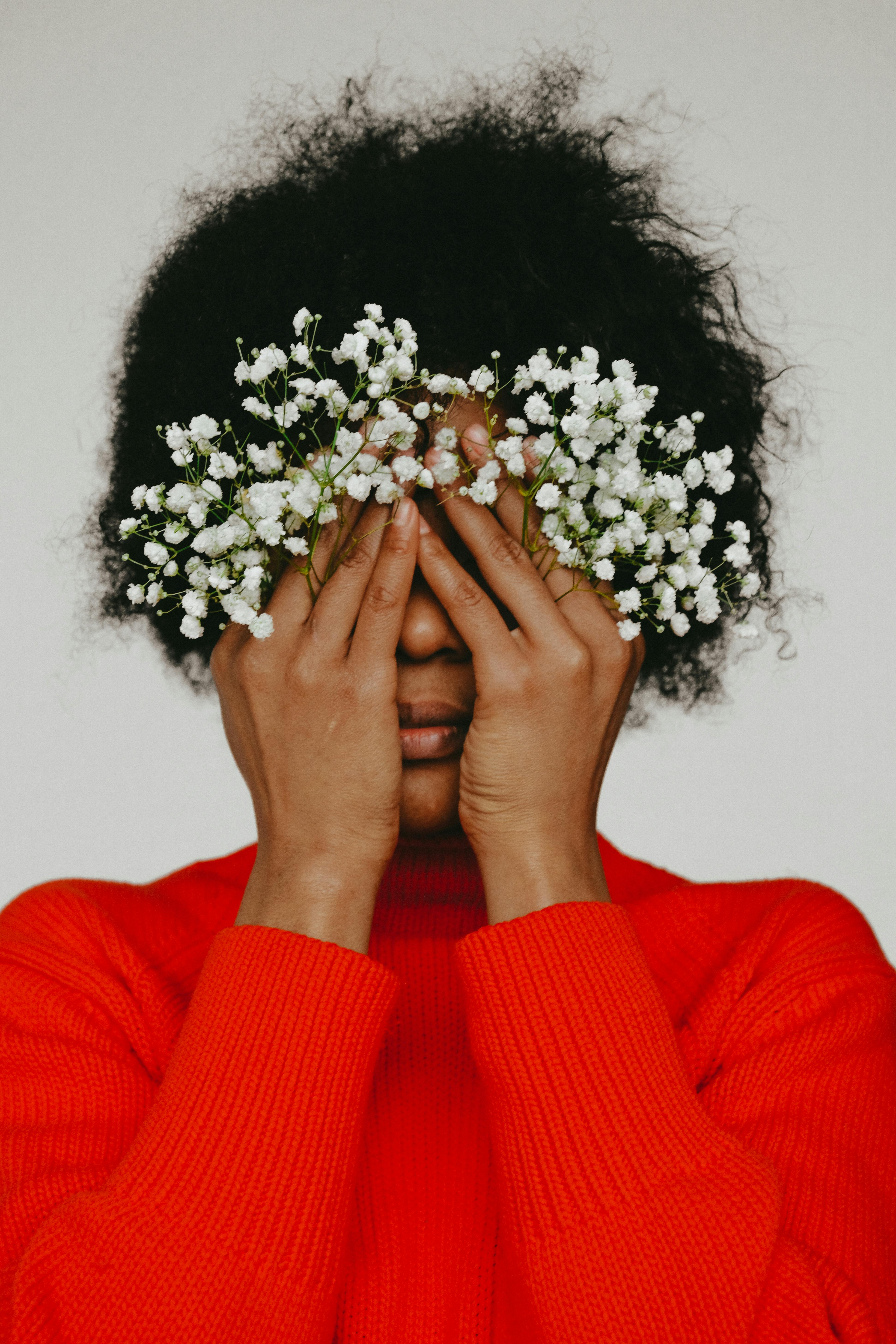For a lot of people, cannabis is an anti-anxiety tool. A 2016 survey of medical marijuana users found that 58 percent of people say they use cannabis to treat their anxiety; in a survey of women who use cannabis conducted by Miss Grass earlier this year, a whopping 91% said the same. And no wonder: cannabis can help you feel relaxed in social situations and it also offers a lower side effect profile than anti-anxiety medications such as Xanax.
Studies suggest that the endocannabinoid system is present in all brain regions—including the hippocampus, prefrontal cortex, and areas of the amygdala that play a crucial role in processing emotions like stress, fear, anxiety, and paranoia. Research also suggests that the endocannabinoid system can help us regulate emotional responses concerning anxiety. As a result, cannabis consumption can help one enter a state of calm. This works by increased activation of cannabinoid and oxytocin receptors, combined with the pleasant effects of increased dopamine levels.
However, there's also the very real stereotype that getting too high could leave you hiding in a corner and too anxious to move or speak. We all have that friend (or are that friend) who once upon a time got unbearably high from an edible and, as a result, now wants nothing to do with weed.
So, how can a plant that soothes anxiety also cause it? And if you do get anxious from too much weed, what should you do? Keep reading for answers to all your cannabis and anxiety questions.
Why can cannabis cause anxiety?
According to research done by The University of Washington on the effects of marijuana on anxiety disorders, THC appears to decrease anxiety at lower doses but can increase anxiety at higher doses. When we have too much THC, the same brain mechanisms that help reduce anxiety can be overwhelmed. "By using products with a high amount of THC, our amygdala can become overstimulated, producing feelings of fear and anxiety," says Your CBD Store's Chief Science Officer, Dr. Anthony Ferrari. Meanwhile, CBD—and, particularly, high doses of CBD—appears to decrease anxiety.
There's also the possibility that cannabis exposes anxiety that's already present but usually not acknowledged. As Miss Grass previously reported, one of the reasons cannabis helps treat PTSD is that it allows people to safely access thoughts, memories, and fears that usually feel too upsetting to dive into. Cannabis should not be used to numb one's emotions or avoid dealing with them. Not only does this tend to backfire, but any drug—even cannabis—can be abused when not used intentionally. Better to consume with the actual intention of facing whatever is causing you stress to begin with. (More on that below.)
If I get cannabis-induced anxiety, how can I treat it?
As Miss Grass previously reported, there are things you can do to help come down to Earth after consuming too much THC. These include taking fellow non-psychoactive CBD, which can counteract the effects of THC. To dull the effects, you can also call upon natural products, such as lemon and black pepper, which contain the mood-boosting and THC-tempering terpenes limonene and myrcene respectively. As research director at Realm of Caring, Nicolas Schlienz, P.h.D points out, the reason terpenes make you feel better could have a pretty simple explanation. "I think there's that clear comparison to aromatherapy," he notes. While we're still waiting on tried-and-true double-blind studies to confirm all of this, putting a little bit of relaxing lavender essential oil (which contains the terpene linalool, known for its calming effects) under your nose and inhaling certainly won't hurt.
Another grounding technique that Schlienz suggests is mindfulness. Mindfulness is all about being in the present moment. By anchoring yourself in the now, you can get out of your head; the place where anxiety usually lives. For Tina Horn, writer of the SfSx comic book series, mindfulness exercises help her feel grounded enough to fully enjoy her cannabis experience, especially if it brings difficult emotions to the surface. "In some very high moments, I've started to feel deep grief, fear, anxiety, or rage and have used a mindfulness practice to look another way," she says. "I know this isn't a one size fits all approach, but for me, it's been powerful medicine to have the extreme experience of mindfulness to integrate into daily existence." Great advice to follow regardless of whether you’re high or not.
As we covered in a guide to avoiding cannabis paranoia, a change in setting can help shift your entire mood. You can stay one step ahead of this and make sure to only consume cannabis around friends that you love and trust. "When you're around good people and have good friends around you that you can trust, I think that by itself is powerful," Schlienz says. What you don't want is to use cannabis around people who would, for whatever awful reason, make you feel worse if you confessed to feeling a bit anxious. He also suggests stepping away and engaging in diaphragmatic breathing exercises to root yourself in the present and reduce anxiety.
Creating an intention for your cannabis experience is also a great way to ward off anxiety and stay grounded. "I almost never get anxious when I'm stoned, but that might be because I make a little intention ritual. Like, I'm going to smoke this joint and do yoga for the length of this album, or I'm going to get high and write a song," Horn says. "I do think it helps me from being paranoid or wishing I wasn't stoned."
What else should I know?
Remember that we are just beginning to understand the cohesive effects of the cannabis plant. Unlike other substances used to treat anxiety—such as Xanax, which contains the single ingredient alprazolam—research suggests that cannabis contains between 80 and 100 cannabinoids and about 300 non-cannabinoid chemicals. For instance, terpenes, the fragrant oils found in cannabis that create its aroma, such as limonene, are also being studied for their anti-anxiety effects. However, more research is needed to understand precisely how cannabis treats anxiety.
Some time ago, the cannabis industry was keen to suggest certain strains to fight anxiety. However, we now know that even strains with the same name can be drastically different from one another depending on where they're grown. Couple that with the knowledge that humans react vastly differently from one another when it comes to the effects of cannabis, and it becomes difficult to suggest a one-size-fits-all recipe to treat anxiety with weed. Thankfully, cannabis is pretty safe to experiment with. And experimenting is probably your best for getting to know what works for your unique biochemistry.
To cover your bases, make sure to discuss how to use weed for anxiety with a cannabis-friendly doctor or psychiatrist—especially if you are already taking medications such as SSRI antidepressants or benzodiazepines. While the interaction risk is low, taking multiple medications makes it trickier to track what's working and what is not. For this reason, Schlienz suggests running your cannabis use past a doctor or trusted medical professional: "Getting that opinion is helpful because they're looking at cannabis and other drug interactions to reduce the possibility of adverse health consequences."
And always follow the golden rule: Start low and go slow. While all the tips in this article on lowering cannabis-induced anxiety are helpful, the easiest way to prevent cannabis-induced anxiety to avoid taking too much THC in the first place. Remember, you can always take more.






